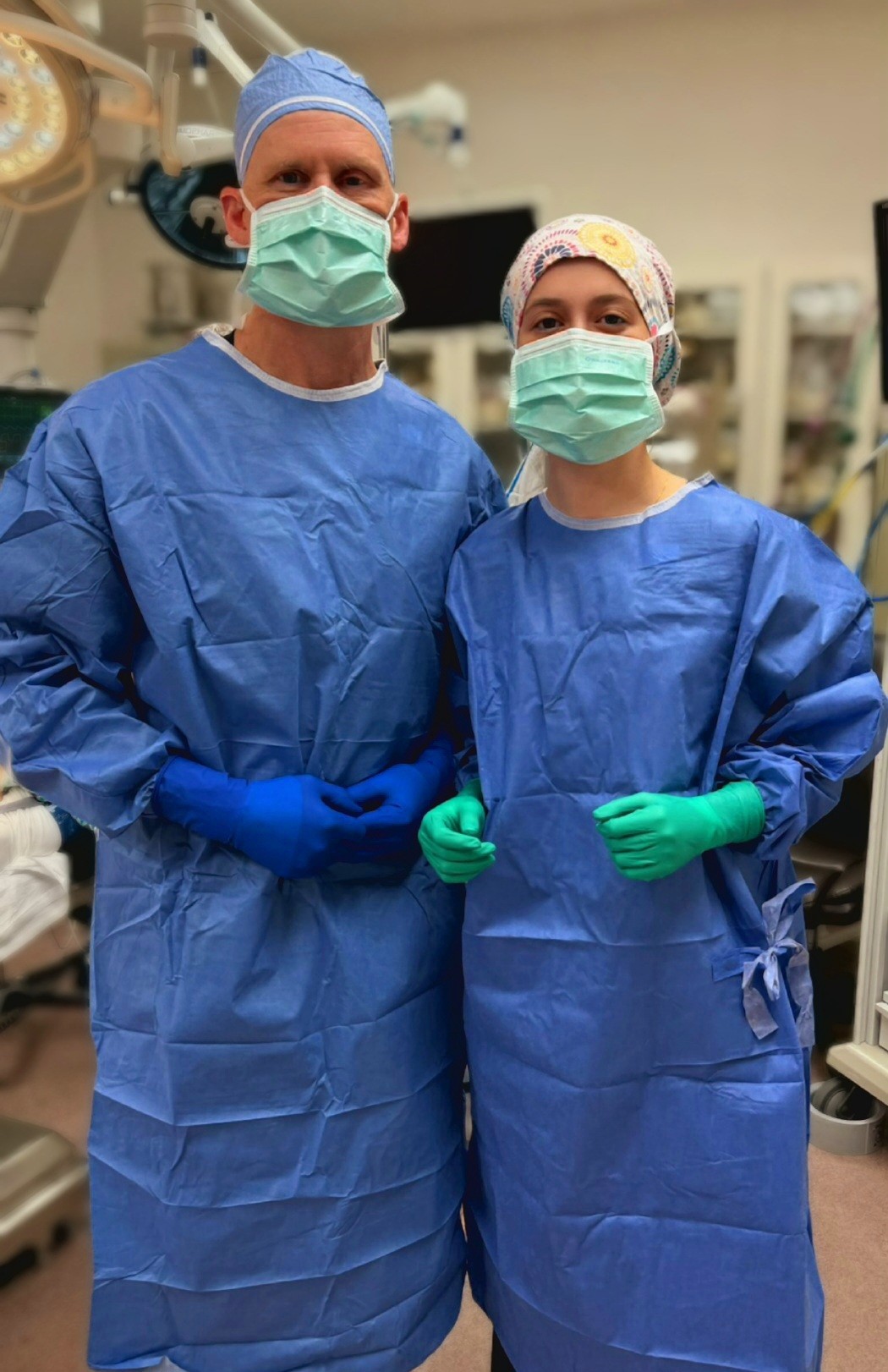Thyroid Surgery
Endocrine surgery is something else we do.
The thyroid is an endocrine organ that lives in the lower part of the neck. Its main function is to regulate your metabolism by releasing hormones into your bloodstream. Thyroid surgery is typically performed for thyroid nodules, a larger than typical thyroid, or thyroid cancer. Sometimes large nodules can cause difficulty swallowing or pain in the lower neck, necessitating removal. Thyroids can also be over or under functional in terms of regulating other body systems. These frequently can be managed with medications alone. Cancer may also be found in the thyroid, typically in a nodule. As part of your workup, nodules that meet certain characteristics and size may require sampling. This can be done in an office setting with ultrasound guidance and a very fine needle. Most times we get enough thyroid cells from this procedure to diagnose your thyroid condition.
What should I expect if cancer is found in my thyroid?
If cancer is found or suspected, this is usually managed with thyroid removal. Thyroid cancer is unique in that it is usually a slow growing cancer and one that can be easier to cure than other types of cancer. Most thyroid surgeries can be done requiring a short hospital stay and minimal post-operative pain.
What is the difference between thyroid disease and parathyroid disease?
The parathyroids are separate organs from the thyroid. These small organs lie deep to the thyroid gland, also in the lower part of the neck. There are usually four parathyroid glands: two on the left and two on the right. They are responsible for calcium regulation in the body. The hormone produced by these glands regulates how much calcium is absorbed and excreted by the body. Occasionally, one or more parathyroid glands starts secreting parathyroid hormone erroneously and cause elevated calcium levels in your body. Symptoms of parathyroid disease can include abdominal pain, some psychiatric illnesses, and development of kidney stones. If you have these symptoms and elevation of your calcium and parathyroid hormone levels, it may indicate that you have a parathyroid issue. Removal of the disease parathyroid gland is typically curative and would be similar to thyroid surgery.
Patients with thyroid and parathyroid issues frequently see an endocrinologist. They can help delineate whether your condition is treatable with surgery or can be medically managed. For surgical issues, we would be happy to see you in the office to discuss further.

“Thyroid cancer is unique in that it is usually a slow growing cancer and one that can be easieir to cure than other types of cancer.”
Kind words from our patients
“Dr Biggs was very professional and friendly. He explained things so i could understand. He told me exactly what to expect.”
– Jessie
Contact Us
Office
Dr Rodney Biggs MD
530 Running W Dr Ste 120
Gillette, WY 82718
Office Hours
Mon-Thu: 8:30am – 4:30pm
Fri: 8:30am – 12:00pm
Sat & Sun: Closed
